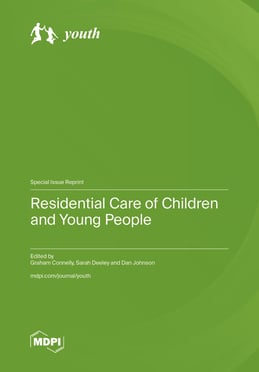Youth
Youth is an international, peer-reviewed, open access journal on education, sociology, economics, cultural studies and other social perspectives of youth and young adulthood published quarterly online by MDPI.
Quartile Ranking JCR - Q2 (Social Sciences, Interdisciplinary | Family Studies)
All Articles
News & Conferences
Issues
Open for Submission
Editor's Choice
Reprints of Collections

Reprint
Residential Care of Children and Young People
Editors: Graham Connelly, Sarah Deeley, Dan Johnson


